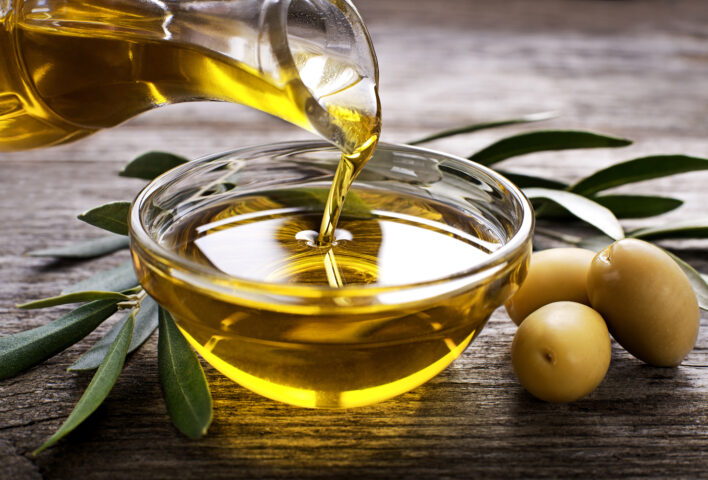Fats
Fats are an essential part of our diet but it is important that we do not eat too much. Understanding the role fats play in the human body can help us include the right type of fat in our diet.
Fats help with the absorption of the ‘fat soluble’ vitamins – vitamin A and the carotenoids, vitamin D, vitamin E and vitamin K. Fatty acids, the building blocks of many important substances in the body, are essential to cell membranes, maintaining a regular heartbeat, providing an anti-inflammatory function, regulating cholesterol and contributing to brain and eye development in a developing baby. Fats provide a concentrated source of energy (calories) therefore eating too much can lead to weight gain. The optimum amount of fat in our diet depends on our stage of life. Extremely low fat diets will limit the amount of fat soluble vitamins and essential fats in our diet.
There are 3 main types of fats: saturated fatty acids (SFAs) and two types of unsaturated fatty acids – monounsaturated fatty acids (MUFAs) and polyunsaturated fatty acids (PUFAs).
For adults fat intake should not exceed more than 33% of total food energy intake, limiting saturated fat to 11% of food energy intake. This equates to a maximum overall daily fat intake of 95g for men and 70g for women, of which saturates should be no more than 30g and 20g respectively. Monounsaturated and polyunsaturated fats should each provide around one-third of our fat intake.
Vegan and vegetarian diets tend to be lower in saturated fat than diets containing meat. However, both saturated and hydrogenated fats are found in some vegetarian foods.
Saturated fats are mainly in animal products such as butter, cream and hard cheese, but also in palm oil and coconut products. Palm oil and hydrogenated fat (which is chemically altered to remain hard at room temperature) are used extensively in the production of biscuits and pastries.
Saturated and hydrogenated fat have harmful effects on health such as weight gain which is associated with diabetes, and raising blood cholesterol levels. High levels of cholesterol cause atherosclerosis, increasing the risk of developing heart disease.
Healthier, unsaturated fats are mainly from plant sources such as fruit, seeds, nuts and vegetables. Sources of monounsaturates are olive oil and rapeseed oil. Sources of polyunsaturates are sunflower, soya, sesame and corn oils. Monounsaturated and polyunsaturated fats can help lower blood cholesterol levels and blood clotting.
Omegas
The PUFAs are classified into the omega-3 and omega-6 families. Referred to as the omegas, the omega-3 fatty acid is alpha-linolenic acid (ALA) and the omega-6 fatty acid is linoleic acid (LA). Both these are essential nutrients for health.
An adequate intake of omegas may prevent and control a number of inflammatory conditions such as heart disease, arthritis, macular degeneration, and immune dysfunction (e.g. asthma, eczema). However, omegas use the same enzymes for their metabolic pathway, so it is important to balance their intakes appropriately. The ideal ratio of LA to ALA acid (O6:O3) is 3:1. However, the Western diet which is heavily dependent on fried and processed foods tends to have a ratio closer to 15:1. The activity of enzymes can be affected by excessive intakes of saturated fats, alcohol, caffeine, and sugar, as well as deficiencies in zinc, magnesium and vitamins B and C which can be common in Western diet. Under these circumstances omega 6 fatty acids inhibit the conversion pathway of omega 3 fatty acids. Omega 3 deficiency can therefore occur and this creates hormone-like substances which encourage platelet stickiness, inflammation and water retention, leading to high blood pressure.
LA is widely available in a vegetarian diet from nuts, seeds, maize (corn) and soya beans. ALA is found in flaxseed, walnuts and hempseed. Both LA and ALA are found in green leafy vegetables, milk and eggs.
The health benefits of omega-3 are suggested to come from docosahexaenoic acid (DHA) and eicosapentaenoic acid (EPA) which the body makes from the parent essential fatty acid ALA. In nature, marine algae is the primary source of DHA and EPA. A non-vegetarian source of omega-3 is oily fish because it is rich in DHA and EPA from marine algae. There are a number of vegetarian supplements for DHA and EPA available if you are concerned about your intake.

